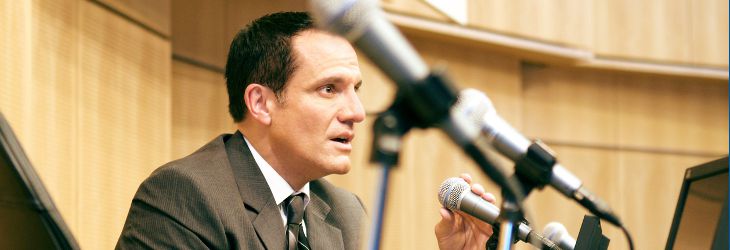Much like the muckrakers of the early 20th Century and the investigative journalists of today, Critical Rhetoric scholars seek to expose the way power operates in society. Scholars of Critical Rhetoric, however, focus on the ways that those in power keep and maintain their authority through communication. In other words, Critical Rhetoricians are concerned with the ways power is communicated through discursive – and sometimes non-discursive – acts.
To gain a better understanding of what this scholarship looks like in practice, we will further explore in this article what it means to be “critical” in scholarship, trace the development of critical scholarship in Rhetorical Studies, survey a number of scholars engaging in Critical Rhetoric, and assess Critical Rhetoric’s place in the field today.
Further Defining What It Means to be “Critical”
While most scholarship in Communication Studies is critical to some degree, what sets scholars of Critical Rhetoric apart is their research focus, fluctuating use of method, and activist nature in their prescription of remedies to right the wrongs revealed through their research.
As we highlighted in our article on Rhetorical Studies, Critical Rhetoricians seek to reveal the ways power is communicated through language, often examining “issues of race, ethnicity, class, gender, sexuality, and material conditions” (Burgchardt, 2010). To be critical in examining instances of oppression means to purposely not adhere to notions of scholarly objectivity, for as Elie Wiesel famously declared – “Neutrality helps the oppressor, never the victim.”
Another facet of critical scholarship is the (sometimes very intentional) shunning of traditional research methods of analysis, or the use of several methods at any one time. In other words, because Critical Rhetoric “seeks to unmask or demystify the discourse of power,” scholars will often use any means possible to do so (Mckerrow, 1989). Unlike other scholars in Communication Studies, Critical Rhetoricians are usually defined not by their research methods, but by their overarching methodology. Indeed, many Critical Rhetoricians contend that doing Critical Rhetoric is not a method, but a practice.
Put even more simply, if a scholar of Critical Rhetoric wants to reveal the rhetorical techniques the Bush Administration used in justifying the Invasion of Iraq in 2003, they might use any number of methods – like Narrative and Metaphor – to demonstrate to the reader the multifaceted rhetorical approach taken by officials at the time.
Finally, Critical Rhetoric scholars often provide readers – and hopefully the general public, activists, and social justice movements – with a communicative remedy to the particular issue ailing society. This is not say that – to carry on the illness/remedy metaphor – their prescriptions work, but a distinguishing factor in Critical Rhetoric scholarship is the activist nature in challenging the ways language is used to oppress or maintain power.
Spotlight on Scholarship - Featured Scholars in Critical Rhetoric
Because Critical Rhetoric still occupies a contested realm within Communication Studies – there is a small yet rather vocal contingent of scholars that decry the work and instigative nature of Critical Rhetoric scholars – so accurately labeling Critical Rhetoric scholars can be a bit tricky. Luckily, however, most scholars in this area of rhetoric do not shy away from the label. Below is a list of scholars that have engaged in, or regularly engage in, Critical Rhetoric scholarship.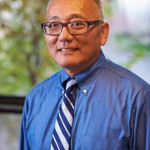
To be blunt, any list of Critical Rhetoric scholars would be remiss without Dr. Nakayama. His contributions to the fields of Critical Rhetoric, Intercultural Communication, and Critical Race Studies are as influential as they are numerous. With “more than fifty book chapters and journal articles,” widely used and cited textbooks, and stewardships of some of the discipline’s best journals, Dr. Nakayama’s mark on the field is “unique” and certainly “illustrious” (Northeastern University, 2019). For his contributions to Communication Studies, Dr. Nakayama was awarded NCA’s Distinguished Scholar Award in 2019.

While more widely known for his work in visual rhetoric, particularly as it manifests in photojournalism, Dr. Lucaites career-long focus has primarily been about notions of equality from “the time of the American founding to the 1980s” (Lucaites, n.d.). Indeed, one exemplar of his work with equality is his 1990 essay, “Reconstructing : Culturetypal and Counter-cultural Rhetorics in the Martyred Black Vision,” with Celeste M. Condit. As an example of Critical Rhetoric, Lucaites and Condit (1990) argued that “equality” functions as an ideograph, or a word that links rhetoric to ideology, and highlighted how rhetors Martin Luther King, Jr. and Malcom X utilized the word in the movements they led.

Without question, Dr. Condit is a titan in the field of Communication Studies. Her work encompasses several crucial topics that span several disciplines, examining the rhetorical intersections of genetics, biology and Women’s Studies. While Dr. Condit’s work in these areas can be considered practices of Critical Rhetoric, her work on race and rhetoric helped further legitimatize Critical Rhetoric in Rhetorical Studies. Dr. Condit is currently a Distinguished Research Professor in the Department of Communication Studies at the University of Georgia.
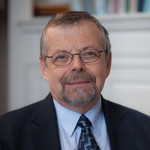
Now Professor Emeritus at Ohio University, Dr. McKerrow’s service to the discipline is truly astounding. In addition to providing the scholarly foundation for Critical Rhetoric, Dr. McKerrow has authored over 70 articles in some of the discipline’s most respected journals, helping him win several awards, including the Douglas W. Ehninger Distinguished Rhetorical Scholar Award from the National Communication Association. Dr. McKerrow teaches several courses about rhetoric, including Rhetorical Theory and History, Feminist Rhetoric, and Postmodern Rhetoric.
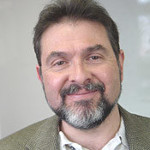
Another offshoot of the "ideological turn" (discussed below) in Rhetorical Studies is Dr. Charland’s proposition of “constitutive rhetoric.” In his now foundational essay in the Quarterly Journal of Speech, “Constitutive Rhetoric: The Case of the Peuple Québécois,” Dr. Charland theorized that discourse can be used the formulate identity. Specifically, Dr. Charland argued, national identity can be constructed through a transhistorical narrative that ultimately legitimizes power and can guide future generations. Although constitutive rhetoric in Dr. Charland’s postulation is not a pure example of practicing Critical Rhetoric, his theory ushered in a wave of critical scholarship that utilized constitutive rhetoric.

Along with Drs. Middleton (featured below), Hess, and Senda-Cook, Dr. Endres (2015) published the award-winning book, Participatory Critical Rhetoric: Theoretical and Methodological Foundations for Studying Rhetoric in Situ, helping to further democratize Critical Rhetoric through ethnographic and performance (among other) research methods and bridge the fabled divide between academia (often referred to as the Ivory Tower) and the general public. In addition to this book, Dr. Endres and her work in environmental and Native American rhetoric continue to serve as exemplars for the positive direction of Critical Rhetoric and its import in 21st Century America.
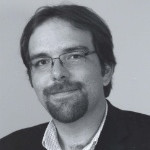
In addition to his contribution to the aforementioned award-winning book, Participatory Critical Rhetoric: Theoretical and Methodological Foundations for Studying Rhetoric in Situ, Dr. Middleton employs Critical Rhetoric in his work examining homelessness and democratic participation in Sacramento, California. Elsewhere, Dr. Middleton continues to research and advocate for what he and others call the “participatory turn” in rhetorical criticism and rhetorical fieldwork.
Tracing Critical Scholarship in Rhetorical Studies
If modern connotations and media portrayals of academics are to be believed, scholars are and have been left-wing activists since the inception of higher education. While the scholar-activist has existed within the academy in some form or another for some time, the model that we know today is a relatively recent phenomenon. Beginning in earnest in Communication Studies in the 1970s, critical scholarship coincided with the rise of several social justice movements of the time.
More precisely, the inception of the practice of Critical Rhetoric began with what is called the “ideological turn” in Rhetorical Studies. In 1980, Michael Calvin McGee proffered the “ideograph” as a way to link language and ideology. According to McGee (1980), ideographs are common words that are used frequently in political discourse that serve as the building blocks of ideology, constantly reifying it in their various manifestations. In rhetorical analyses, the ideographic word under scrutiny is bracketed with what is commonly known as the less than and greater than sign. For example, common ideographs in the United States are {freedom}, {liberty}, and {equality.}
McGee’s postulation laid the foundation for Ideological Criticism in Rhetorical Studies, which, in turn, helped call into being the practice of Critical Rhetoric. In 1983, Phillip Wander further articulated the increasing preoccupation with ideology in Rhetorical Studies in his essay “The Ideological Turn in Modern Criticism.” In short, rhetorical scholars conducting ideological criticism are concerned with how the dominant ideology of a culture is communicated.
Building on this, Raymie Mckerrow (1989) provided what is perhaps the foundational text for Critical Rhetoric in his essay “Critical Rhetoric: Theory and Praxis.” In this essay, Mckerrow provided a robust scholarly justification for practicing Critical Rhetoric and ushered in a new era of scholarship concerned with issues that were once ignored.
Critical Rhetoric Today
Despite the progress made towards improving the human condition in the late 20th and early 21st Centuries, the forces of oppression endure, employing nefarious communication techniques aimed at obfuscating and distracting those that they oppress and those that would seek to challenge their agenda. In the United States and around the world, those in powerful positions continue to conceal the full extent of their power via discursive and non-discursive means, sowing discontent and amplifying discord.
From healthcare to climate change, and from voting rights to reproductive rights, scholars engaging in Critical Rhetoric wield their skillset and knowledge to reveal the ways in which rhetoric is used to exercise power. Today, Critical Rhetoric scholars provide valuable insight not only to the discipline, but, perhaps more importantly, to activists and movements at the forefront of the fight to battle oppression, whenever and wherever it may rear its head.
For example, in his article featured in the Western Journal of Communication, “Dis-Honoring the Dead: Negotiating Decorum in the Shadow of Sandy Hook,” Christopher M. Duerringer (2016) analyzed the discourse uttered in response to the massacre of school children at Sandy Hook Elementary School in December 2012. “Drawing from a Burkean perspective” that reveals the relationships between rhetoric, ideology, and society, Duerringer (2016) argued that many politicians, pundits, gun-right advocates, and lobbyists sought to disqualify and ultimately suppress calls for gun-reform made in eulogies for the slain by issuing counter-calls for “decorum.”
Here, Duerringer (2016) contended, decorum “is a manifestation of ideology,” ultimately “elucidating the material and political ramifications of accepting the worldview imbued in these decorum claims.” In other words, “these arguments work in the service of hegemonic containment, allowing pro-gun advocates to roll back laudable attempts to mourn tragic loss and prevent more in the future.” Put even more simply, even when victims of a school shooting attempt to utilize their tragedy as a catalyst for reform, those in power invoke “decorum” to rhetorically challenge and ultimately block those attempts.
Importantly, this example of Critical Rhetoric first revealed the subtle and nuanced ways power works through discourse. Second, through this revelation, this scholarship helped proponents of reform anticipate this kind of rhetorical strategy employed by those in power looking to preserve the status quo. Finally, Duerringer’s (2016) essay, and other critical scholarship like it, provides a prescription to counter insidious communicative techniques used by those in power, exemplifying the activist nature of Critical Rhetoric.
Without question, Critical Rhetoric scholarship will continue to play a vital role in the coming decades of the 21st Century. Like other scholars in Communication, Critical Rhetoricians begin their work from a place of passion – they see a wrong and want to right it. Students looking to engage in Critical Rhetoric are encouraged to continue this trend and harness their energies into providing a voice for the voiceless. Next, future Critical Rhetoric scholars ought to continue reading both the foundational essays and the latest research, observing how past and present researchers reveal the discursive and non-discursive ways power is maintained in society.
Finally, as we have advocated in other articles, students should make an effort to attend the National Communication Association’s annual convention, as well as the regional conferences, where they can listen to and interact with current scholars in the field.
Sources and Additional Resources
To learn more about critical rhetoric and its place in human politics, culture, and history, please refer to the following resources:
- Burgchardt, C. R. (2010). Readings in Rhetorical Criticism (Fourth). Strata Pub.
- Duerringer, C. M. (2016). Dis-Honoring the Dead: Negotiating Decorum in the Shadow of Sandy Hook. Western Journal of Communication, 80(1), 79–99. https://www.tandfonline.com/doi/full/10.1080/10570314.2015.1116712
- Lucaites, J. L., & Condit, C. M. (1990). Reconstructing: Culturetypal and counter‐cultural Rhetorics in the martyred black vision. Communication Monographs, 57(1), 5–24. https://www.tandfonline.com/doi/abs/10.1080/03637759009376182
- McGee, M. C. (1980). The “Ideograph”: A Link Between Rhetoric and Ideology. Quarterly Journal of Speech, 66(1), 1.
- Mckerrow, R. E. (1989). Critical rhetoric: Theory and praxis. Communication Monographs, 56(2), 91–111.
Middleton, M., Hess, A., Endres, D., & Senda-Cook, S. (2015). Participatory Critical Rhetoric: Theoretical and Methodological Foundations for Studying Rhetoric in Situ. - Northeastern University. (2019, September 6). Communication Studies Professor Tom Nakayama Recognized with NCA Distinguished Scholar Award for Lifetime of Scholarly Achievement. Retrieved from Northeastern CAMD website: https://camd.northeastern.edu/news/professor-nakayama-recognized-with-nca-distinguished-scholar-award/
- Wiesel, E. (1986). Nobel Prize Speech. Retrieved from Elie Wiesel Foundation for Humanity website: https://eliewieselfoundation.org/about-elie-wiesel/nobel-prize-speech/
Additional Topics on Research in Rhetorical Studies
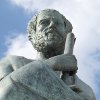
This guide provides an in-depth discussion of rhetorical studies, describing the history and significance of the discipline while also providing readers with theories that are useful to understanding different forms of rhetoric and their functions in human communication.

This detailed article discusses the history and forms of gender criticism in rhetorical studies, and also explains the political, social, and cultural significance of this field of study.

This article provides an overview of genre criticism in rhetorical studies, and how it has evolved over the centuries. It also explains the influential work of scholars in this field of study.

This article explores scholarly approaches to understanding persuasion as material. Explore how scholars have attempted to understand rhetorical discourse as a material thing, and, on the other hand, how material things, like monuments and roads, can be politically persuasive.

This article explains how metaphors are widely used in human communication and understanding, and provides a background on the history and prominent scholarship of this field.

This article covers narrative criticism and the role it plays in culture, politics, and relationships, while also providing examples of prominent scholarship in this field.

Learn about scholarly efforts to understand how communities come to share perceptions about the past and explore the different rhetorical strategies employed in constructing public memory, from monuments to new media.
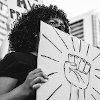
This article examines the history and impact of social movement rhetorical research, and provides readers with a detailed overview of some of the latest research in the field that is being completed by eminent scholars of social justice and civil rights rhetoric.
